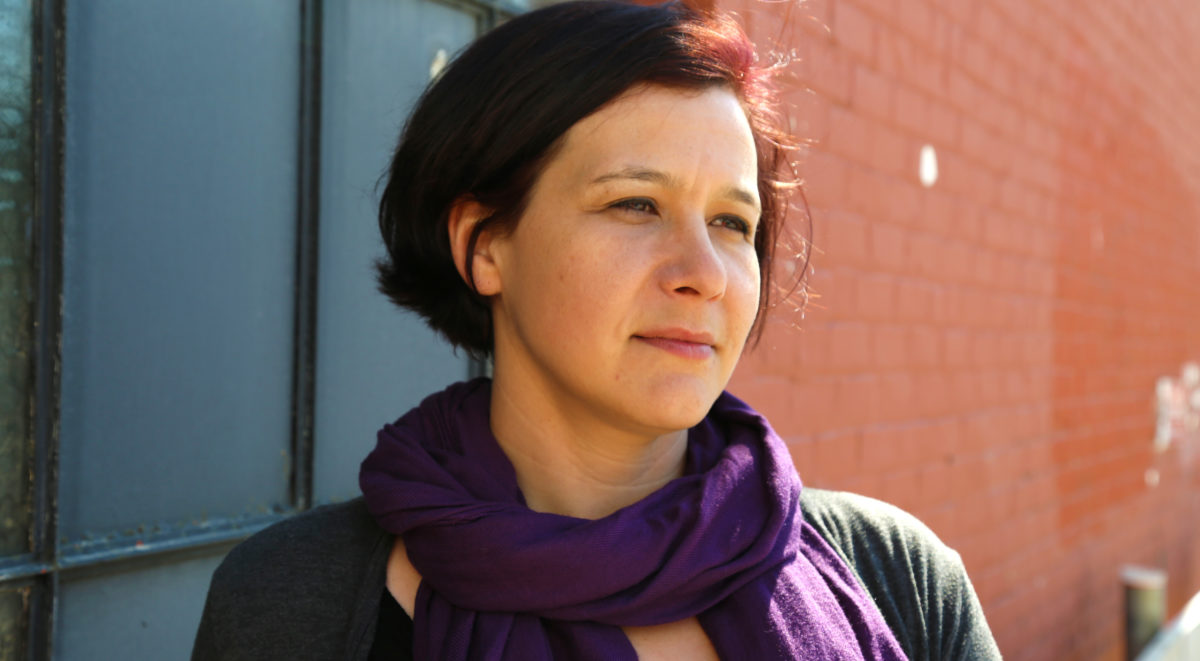
The Pacific Spirit Poetry Prize deadline is just around the corner!
Kate Black caught up with Katherena Vermette, this year’s contest judge, to talk truth and poetry and what she’s looking for in a winning entry. Katherena is a Métis writer from Treaty One territory, the heart of the Métis nation. Her first book, North End Love Songs (The Muses Company) won the Governor General’s Literary Award for Poetry. Her novel, The Break (House of Anansi) was a bestseller in Canada and won multiple awards, including the 2017 Amazon.ca First Novel Award.
Reading your bio always blows my mind—your work has nearly ran the gamut of all genres, from poetry to children’s, fiction and documentary film. Do you approach each of these genres through a poet’s eyes or do you find yourself switching your lens based on the project?
The answer is somewhere in between, I think. I do start everything as a poet, in a way. I think like a poet and think of projects through their images, rhythm and symbolism first. But each medium/genre does take its own special approach and learning—and I feel like I am constantly just learning.
How does working across genres feed your poetry?
Poetry is the base, in many cases the starting point, or the gateway drug, if you will, for other genres. Fiction, screenwriting, etc. all seem to come from a place of work, but poetry begins in a much more organic space. It does become work, of course, but it starts as something that only belongs to me. Many poems stay like that, stay personal, and others get edited and drawn so they can function as poems, hopefully successful ones, and go out into the world.
I always say I write poetry to figure out what I think or feel. I write poetry to make sense of the world, and in many ways, how I feel or think might not be clear to me until I read it back to myself. But then, it’s its own thing, too. It’s a poem. That’s the beauty of a poem—it just is, and can be. Doesn’t have to be anything else.
In your conversation with Marilyn Dumont in What the Poets are Doing, you note that stories and storytelling “should strive to be truthful above all else.” You include poetry in this understanding of storytelling. What does a true poem look like to you, as a writer and reader?
The voice of my old teacher (traditional teacher) comes into my head here, who says (in a voice not unlike Cheech Martin) “Truth just is, man.” He was referring to Truth as one of the Seven Sacred Teachings or Grandfather Teachings but I think that concept applies here. Truth is an essence. It is a being that can’t be seen. It is what is. Ultimately indefinable and the definition of all things. Haha how’s that for a poet answer?!
When does it become challenging to access and communicate truth in your poetry? How to you reckon with this challenge?
I think of truth here as being real, being (that awful word) authentic, or rather being your authentic self. We all stray away from that from time to time, some of us live pretty far away from it, for many reasons. It’s often much safer to be a version of ourselves, or who we think we’re supposed to be, rather than true to our being. So, I guess my answer is to just be real. I try to surround myself with people who will call me on it, if it comes it, and I try to call myself on it, when it comes to it, and be as real, as honest, as I can.
Finally, we’re so excited to have you judging the poetry contest! What qualities are you looking for in a winning entry?
That would be telling!
Just kidding. I like all sorts of things in poetry. I think we forget how diverse poetry can be. It is like all genres and styles of music in words on white paper. There are all sorts of things to find. And, like music, I like all sorts of things depending on mood, what I am doing, how I am feeling. As a judge, I like to read poems in several different mindsets, times of day, and a good poem rises above whatever my imperfect human self is doing at the moment. It crashes through, however loud or quietly, makes me look at something in a different way, makes me think of something I never thought of before. It can be so small a thing, like truly tiny—I am not talking about monumental stuff here—so much great writing is all about the seemingly mundane. But, it stays with you, it sticks. I call these sticky things. The things that stick with you. That’s what I look for.
Thanks, Katherena! Click here to read the Pacific Spirit Poetry Prize rules and submit.